Survey Overview
In February 2025, learningBOX Inc., a company specializing in the development and operation of Learning Management Systems (LMS), conducted a comprehensive survey targeting 412 working professionals across Japan.
Background
As digital transformation (DX) continues to reshape business operations, the demand for digital tools in employee training is also on the rise. In particular, the concept of “reskilling” — enabling employees to learn new skills to adapt to changing job requirements — has gained significant attention. Many companies are now investing in structured learning environments to enhance workforce capabilities and improve operational efficiency.
Despite this trend, the survey revealed that many organizations still rely on traditional training methods, such as in-person sessions and paper-based testing. These approaches often lack the tools necessary for tracking learning progress or measuring training effectiveness. To better understand these challenges, learningBOX Inc. conducted this survey to explore the current landscape of learning management in the workplace and to highlight the importance of digital solutions in talent development.
Survey Details
Title: Survey on Learning Management Systems (LMS)
Period: February 18–25, 2025
Respondents: 412 men and women aged 22–59 across Japan
Target Group: Individuals involved in gathering information or making decisions about internal system implementation
Method: Online survey
Research Partner: Macromill, Inc.
Digital Gaps in Employee Training
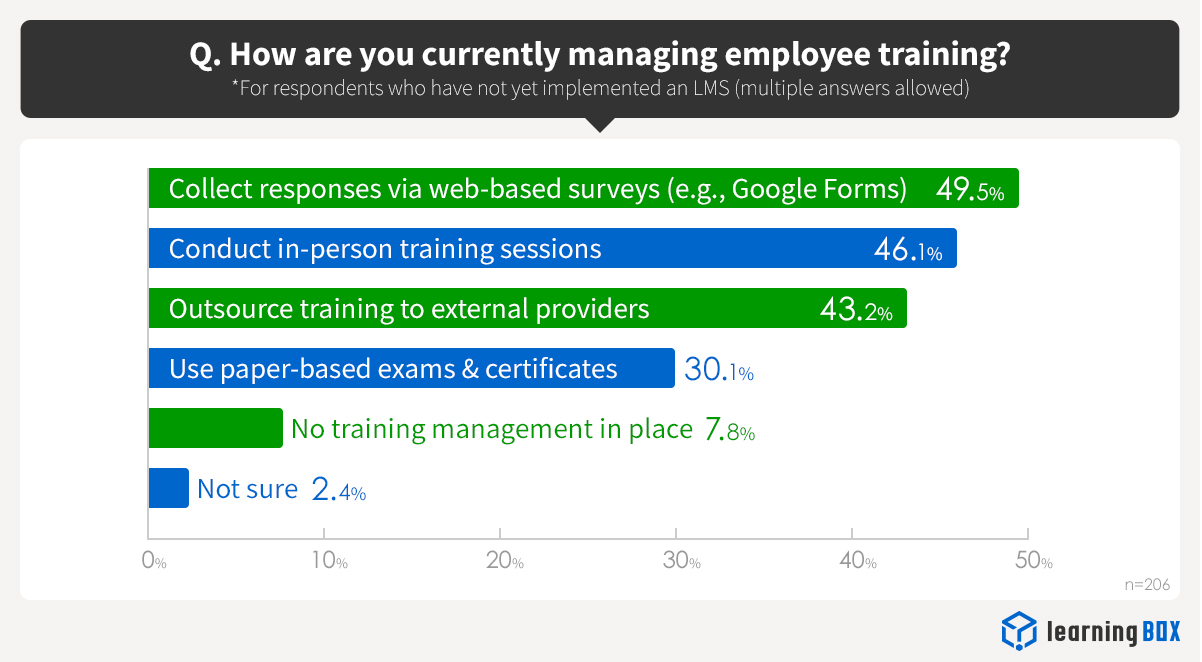
Among companies that have not yet implemented an LMS, 46.1% reported conducting training sessions in person. Additionally, 37.9% still rely on paper-based testing or have no formal training system in place. These findings underscore a significant lag in the adoption of digital tools for employee learning and development.
Driving Demand for LMS Solutions
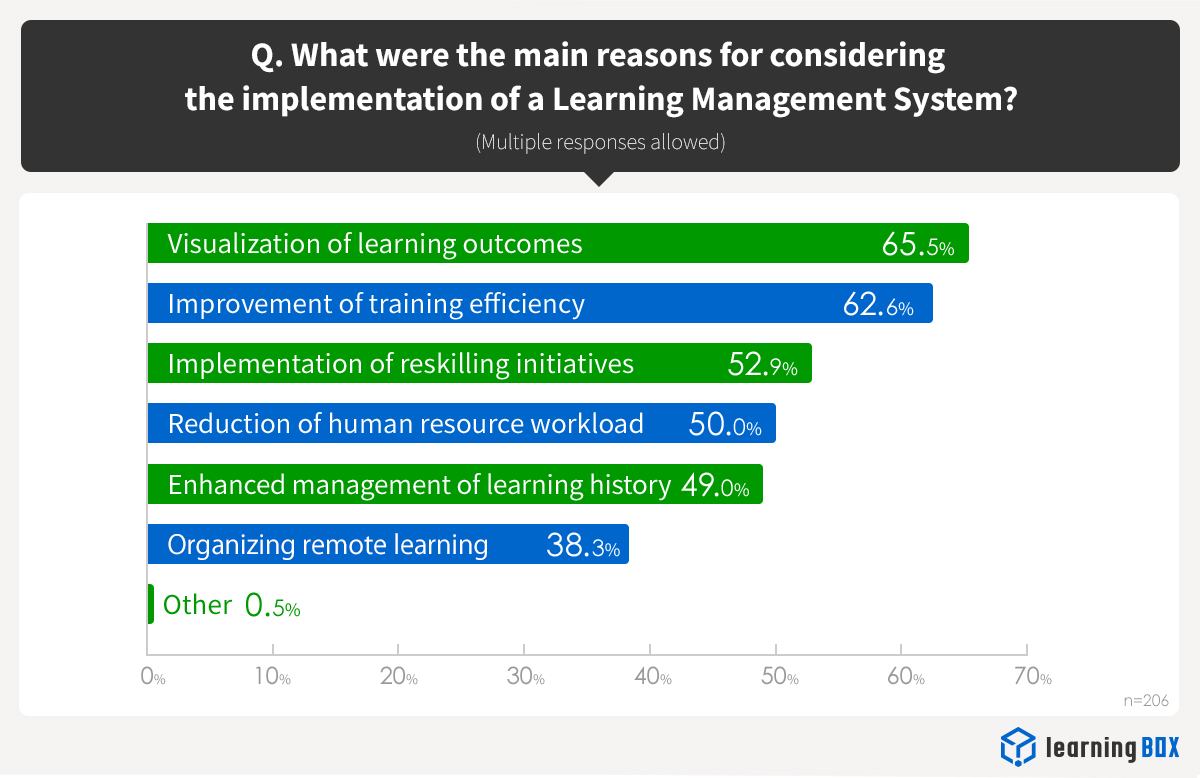
When asked about the reasons for considering LMS implementation, the top responses included “visualizing learning outcomes,” “improving training efficiency,” and “reskilling.” The growing emphasis on reskilling reflects a broader shift in corporate training priorities, where continuous learning and adaptability are becoming essential for business success.
Surveys and AI Integration Lead the Way
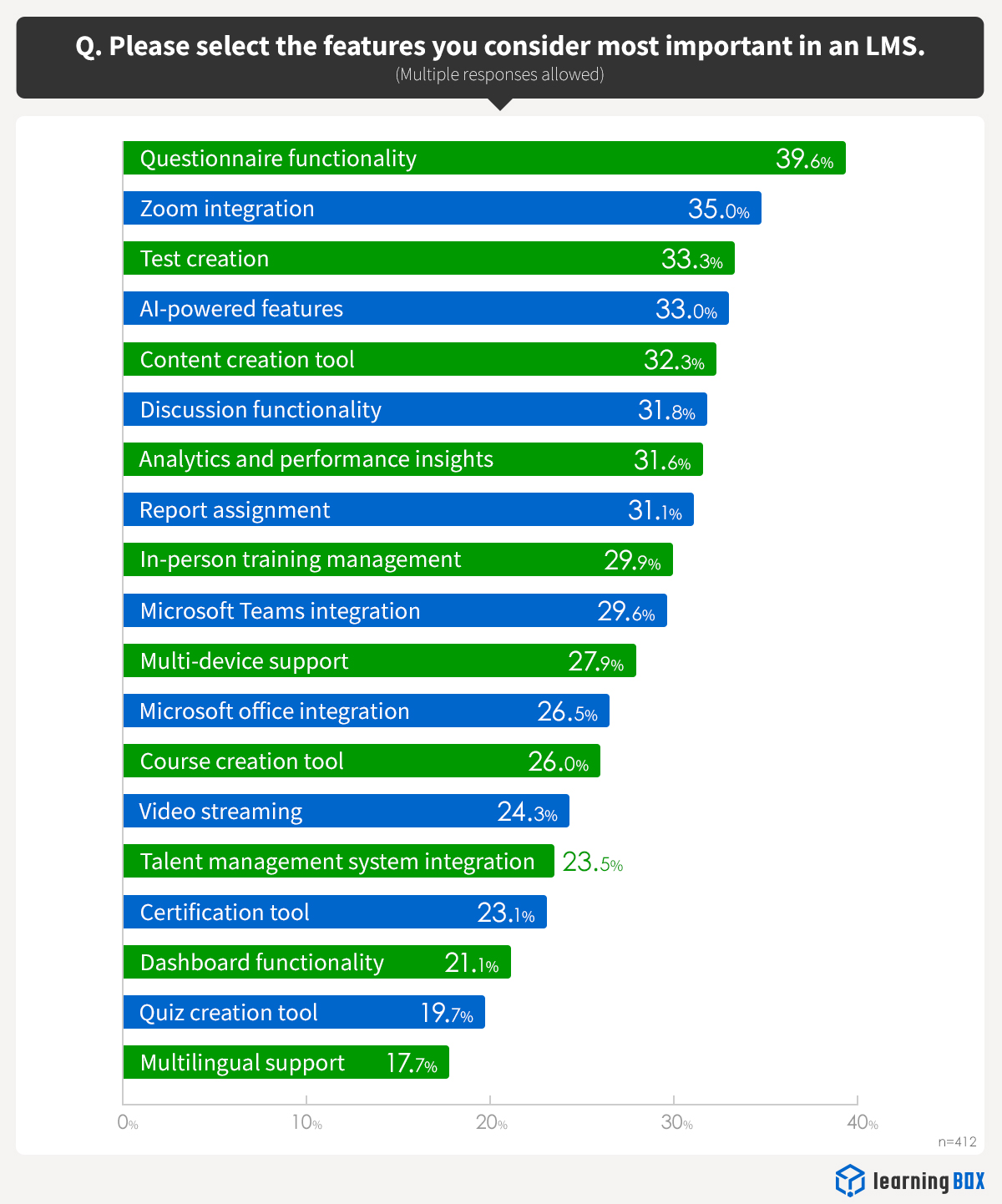
The most desired feature in an LMS was “survey functionality,” cited by 39.6% of respondents. This aligns with current practices, where web-based surveys are commonly used to monitor employee learning progress. Additionally, “AI-powered features” ranked highly, indicating strong interest in leveraging generative AI and other advanced technologies to streamline training processes and enhance learning outcomes.
AI-utilizing functions" was also high on the list, indicating that as cloud services utilizing generative AI become more widespread, learning management systems (LMS) are also expected to improve efficiency through the use of AI functions.
Key Decision Factors: Cost, Support, and Security
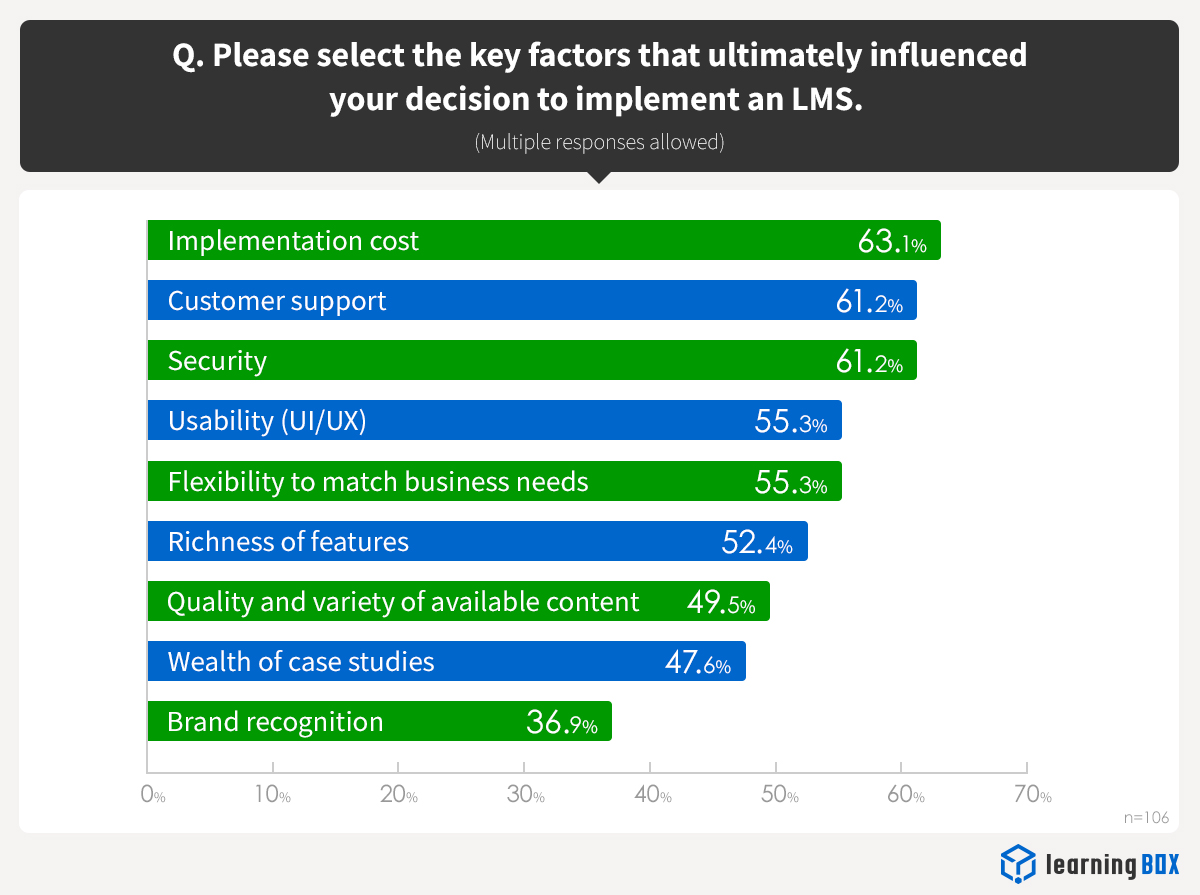
When selecting an LMS, companies prioritize “implementation cost,” “support structure,” and “security.” These results suggest that while organizations are eager to adopt digital learning tools, they remain cautious about budget constraints and place high value on reliable support and data protection.
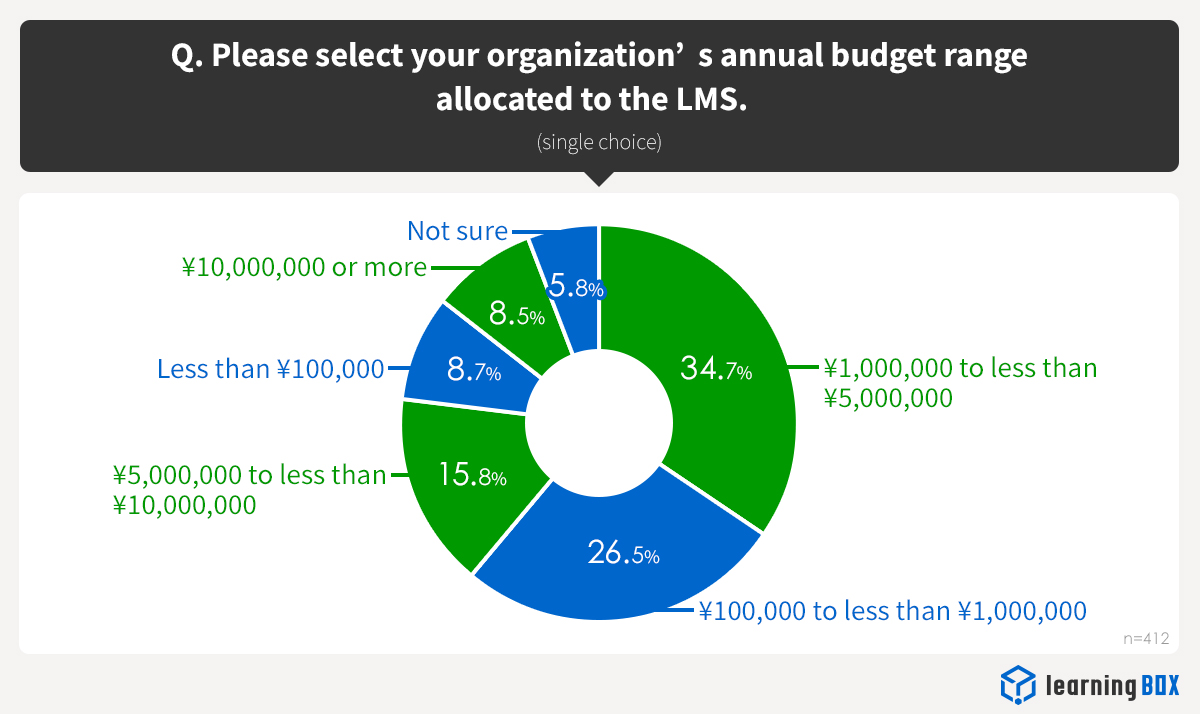
In terms of annual LMS budgets, 34.7% of companies reported spending between ¥1 million and ¥5 million, while 26.5% allocated between ¥100,000 and ¥1 million. These figures indicate that while companies are increasingly investing in cloud-based systems, they are also carefully evaluating costs to ensure sustainable implementation.